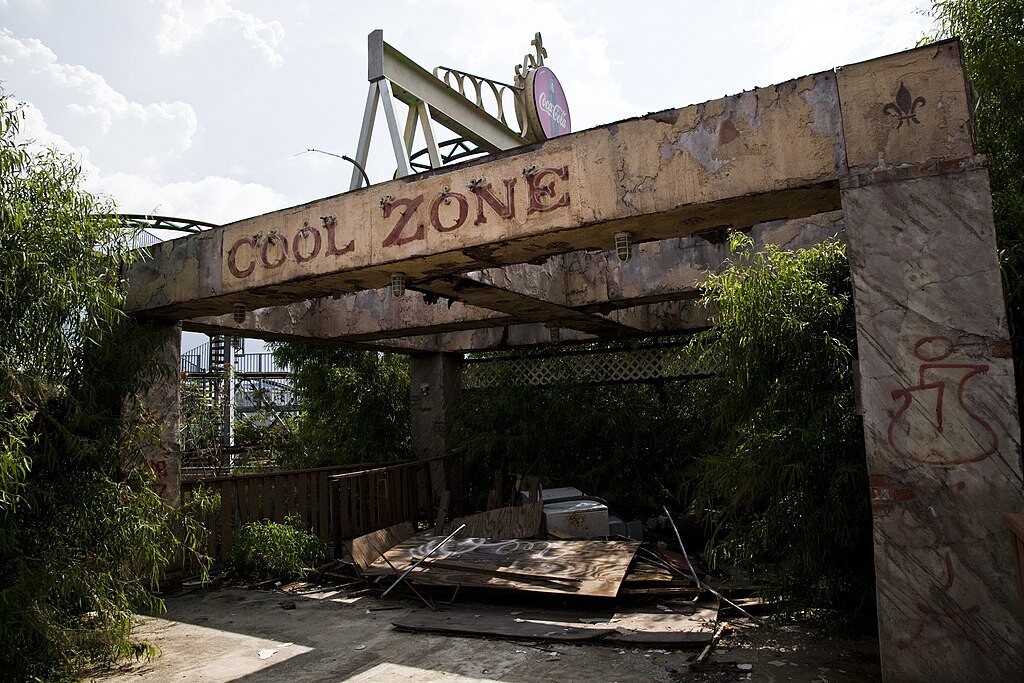What’s the worst part of any amusement park trip? The crowds. Well, that and the heatstroke, but the latter is your fault for thinking an Icee was a viable form of hydration. As for the crowds, those aren’t something you can avoid, unless you want to walk around a bunch of closed roller coasters during a thunderstorm. What if, though, you visit an amusement park that no one ever goes to — because it’s a terrifying, dirty, tetanus-filled nightmare where the whistling winds constantly have you checking for ghosts?
Is it as good of a time as an amusement park with functioning electricity? Probably not. But the photo album from the trip is probably a lot more interesting (whoa, no way, that’s what Disneyland looks like?)
Here are eight shuttered theme parks to visit this summer, though it might not be legally or medically recommended…
Six Flags New Orleans
When one of America’s premier cities is devastated by a natural disaster, including thousands of homes, it’s understandable that low on the list of priorities is the revitalization of a theme park. Which means that, post-Hurricane Katrina, Six Flags New Orleans is now just a Technicolor skeleton of the past on full display. The park, like much else in the area, flooded when the levees broke, and thousands of Dippin’ Dots were left to melt in the unwelcome water feature the park had become.
The area is finally looking at redevelopment now, but that’s less of a success story of the spirit of jazz and more a testament to the fact that wasted space that could be generating income will never abide in the modern world.
Pripyat Amusement Park
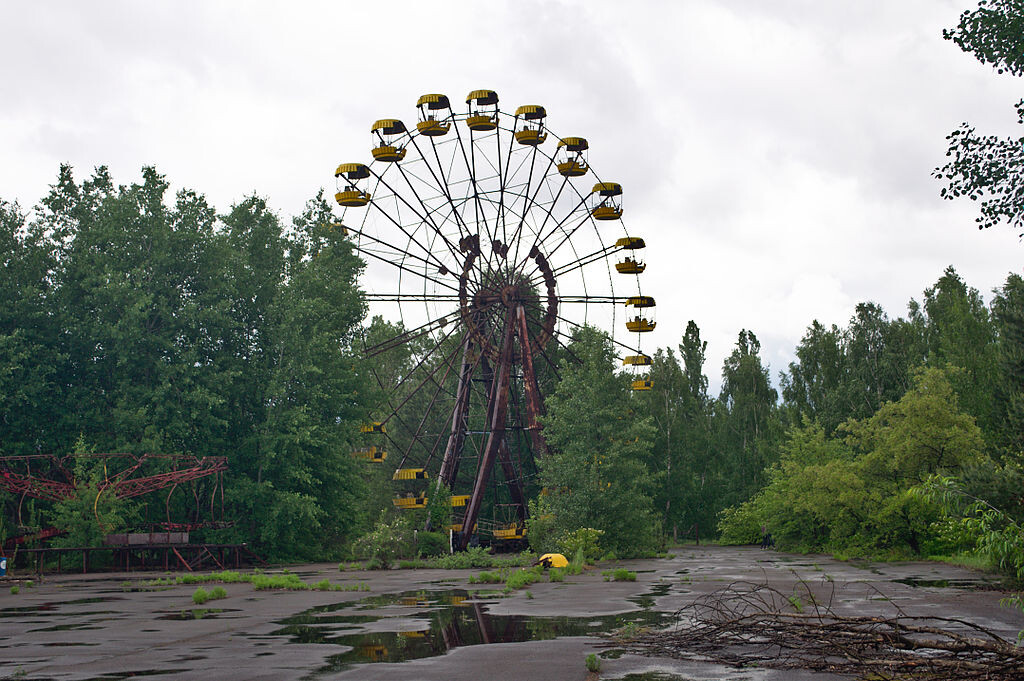
It’s hard to top Katrina when it comes to crippling disasters, but Pripyat definitely has a hand worth staying in for. That’s because Pripyat, the unsurprising location of Pripyat Amusement Park, is close to a much more famous Soviet location: Chernobyl. As in, the site of the greatest nuclear disaster in history. The thing about nuclear disasters is, after they’ve occurred, there’s a lot more involved in making the area rehabitable than sweeping up the debris and patching up the buildings. There’s obviously the matter of everything around being soaked in radiation that’s just looking for some flesh to melt.
Interestingly, the Pripyat Amusement Park never actually opened. It was all set to on May 1, 1986, but Chernobyl blew its top only a few days before on April 26th.
Bongoland
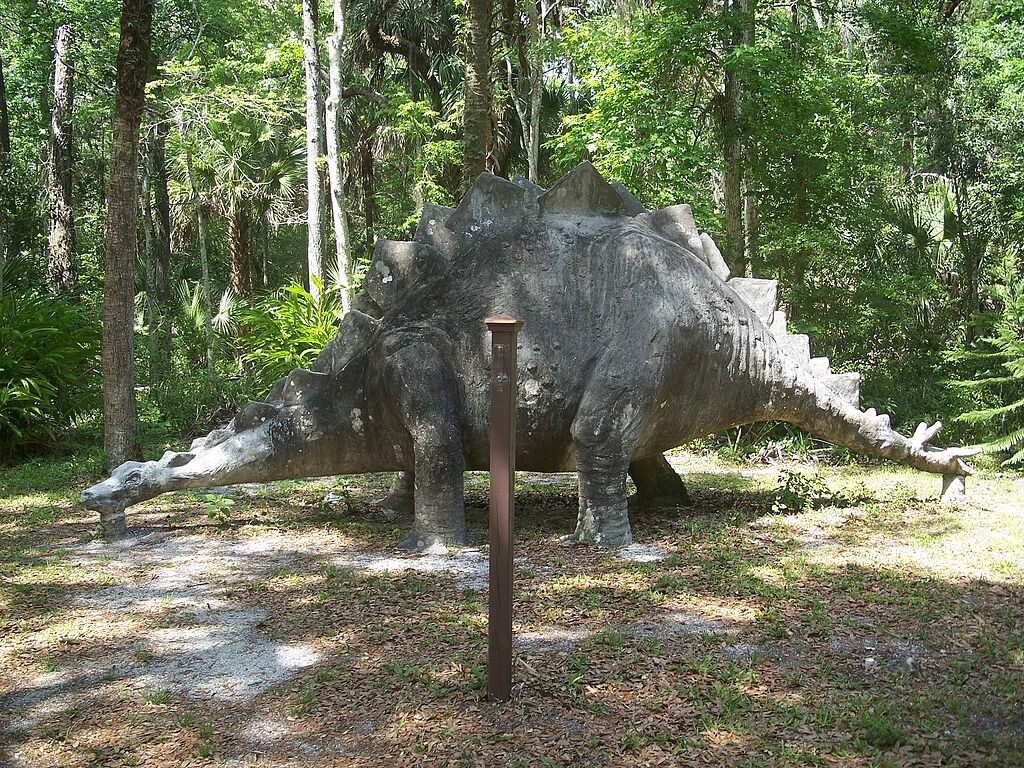
If you were interested in doing some sort of extreme, absolutely criminal prank on a friend of yours that involved giving them amnesia and having them wake up in an unfamiliar place? Bongoland in Port Orange, Florida, would be my number one vote for the place to do so. They’d re-enter the living world in a strange, overgrown park filled with concrete dinosaurs, all dedicated to a baboon nicknamed Bongo. That’s how you break a human mind.
So what exactly is Bongoland? Unlike others on this list, no disaster was needed for Bongoland to fail: just general disinterest. It was a weird little DIY sort of amusement park built by a dermatologist named Perry Sperber, and never found success. The concrete dinosaurs that dotted the park, though, are still around amongst the overgrowth.
Ho Thuy Tien Waterpark
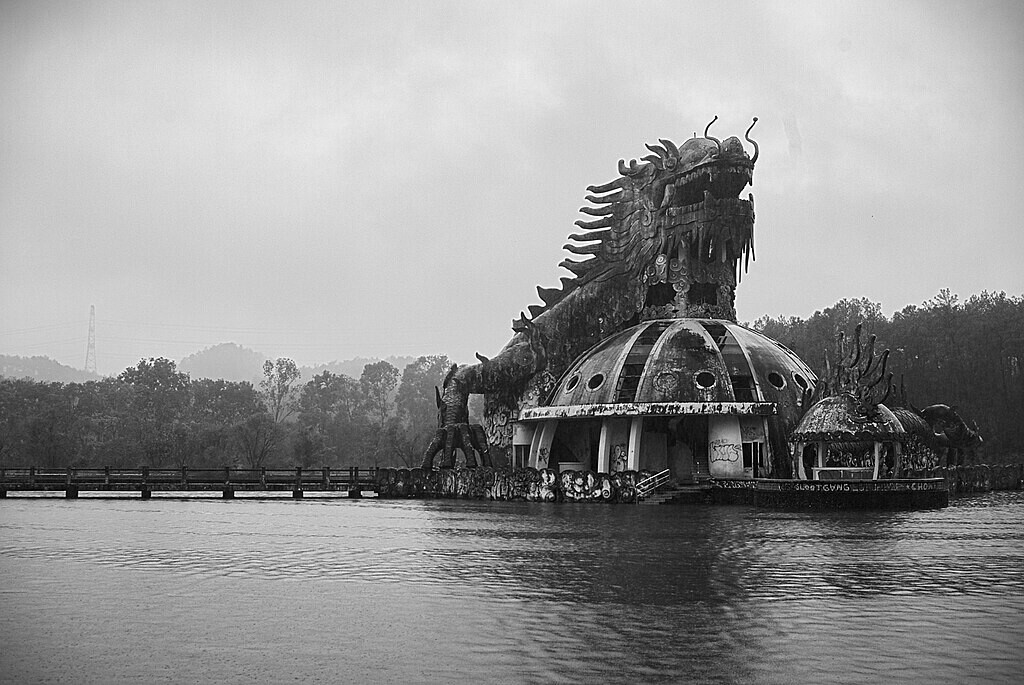
Traditional amusement parks left to rot at least have one advantage: They are not, by design, filled with standing water. Waterparks are not so lucky, especially ones that are impossible or inconvenient to drain on closure. You now have a park designed for entertaining algae, even with the trunks-bleaching amount of chlorine you may have used to keep it from becoming one big case of ringworm. This is the fate of Ho Thuy Tien in Hue, Vietnam, which only enjoyed a couple years of sticky-fingered children playing before closing, and turning into a $3 million petri dish with a dragon on top.
Disney’
s River Country
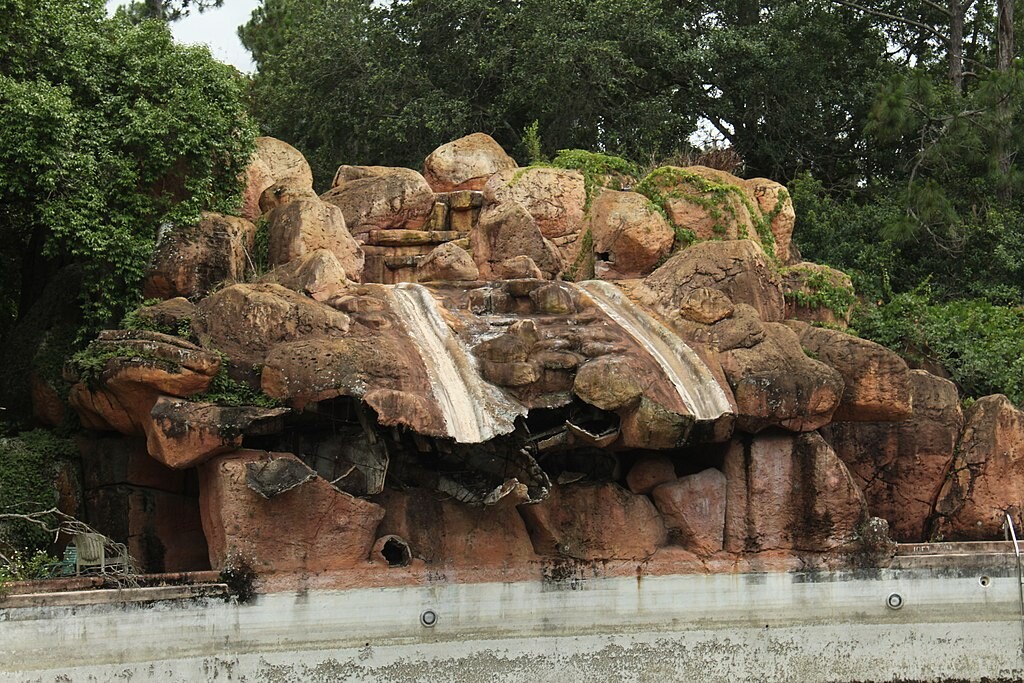
It’s weird to see any Disney park show up on this list because they’re not a company that often fails. So it’s strange that there’s a Disney-branded corpse still sitting in Orange County, Florida, by the name of Disney’s River Country. It was Disney’s first ever waterpark, and maybe they moved on to bigger and better things, deciding to leave it as a gift to swamp creatures who might like some time on the slides. It probably would have been used as the set of a dystopian film long ago if it wasn’t also covered in copyrighted content owned by one of the country’s most litigious corporations.
Dunaujvarosi Vidampark
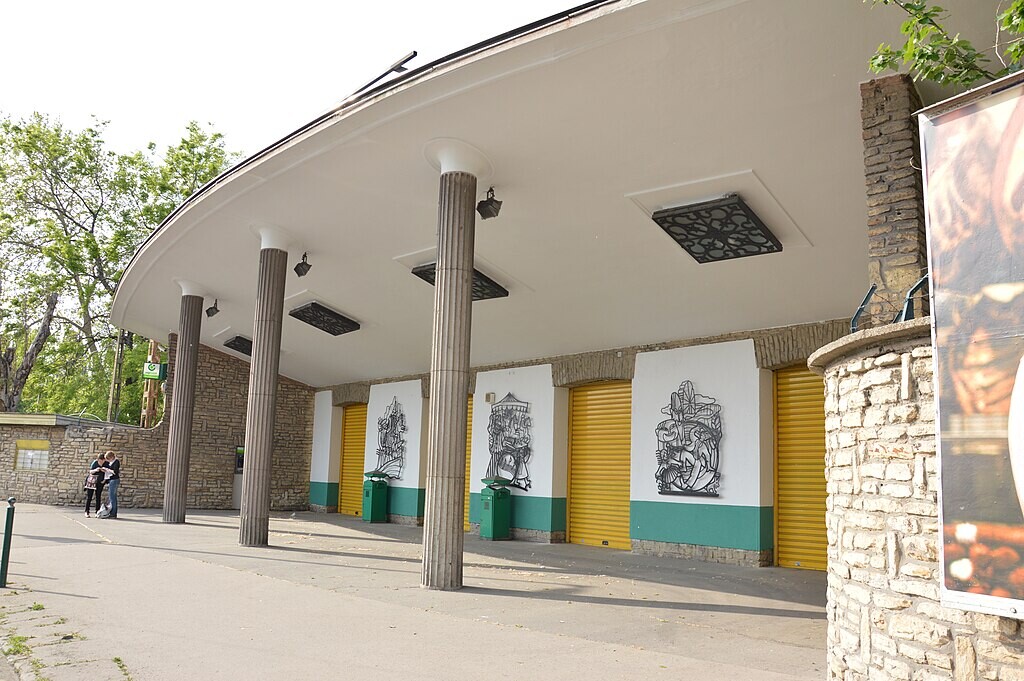
Good lord, even typing the name of this amusement park gave my fingers motion sickness. Based on that absolute barrage of vowels, you might be able to guess where it’s located: Hungary. Definitely one of the countries that really enjoys a good accent mark. The Vidampark, as I’ll call it to avoid pulling a finger muscle, also boasts a fun detail related to its demise. It was a government-funded theme park, its swinging ships kept aloft by the coffers of the Soviet Union. When the Soviet Union fell, with it went this communist coaster kingdom.
Gulliver’
s Kingdom

In 1997, near Mt. Fuji in Japan, a theme park based on the 1726 novel Gulliver’s Travels by Jonathan Swift opened. It — and you’re not going to believe this — wasn’t a hit. It feels like every couple of years, somebody takes a big swing and says, “Hey, remember Gulliver’s Travels?” And every time, the world says, no. This theme park was no exception, and closed four years later in 2001. In fact, the park itself might have legitimately become more of a landmark by closing and falling into disrepair, because that now means that there is a massive statue of a man left to slowly erode in the Japanese countryside.
Spreepark
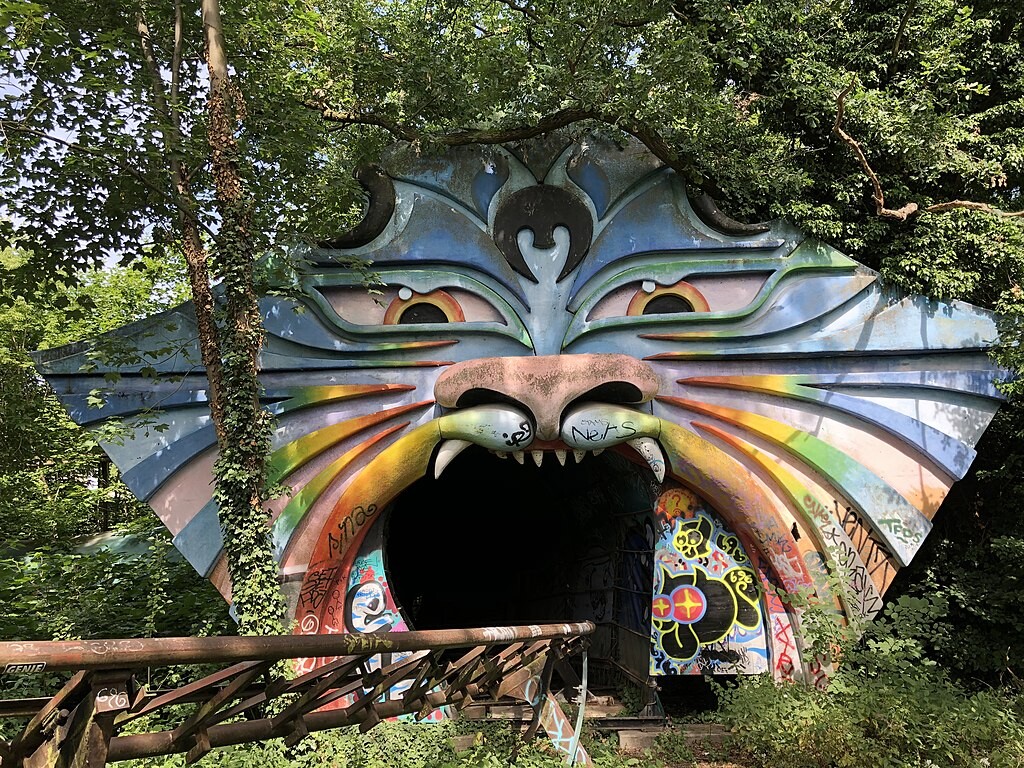
Last, we’ll look at a Berlin abandoned park that’s actually in the process of a seemingly successful renovation effort. The formerly abandoned theme park known as Spreepark is now the site of a reclamation effort. Instead of a vegetation-covered tilt-a-whirl graveyard, it’s been turned into a green public space with a focus on sustainability. Something Pripyat has a better chance of than any of the American amusement parks on this list.

